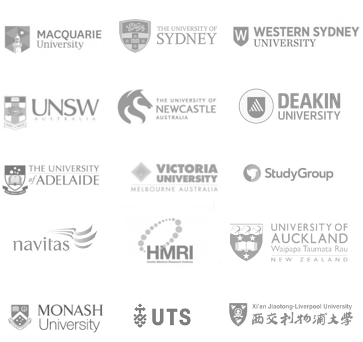Australia’s strong higher education system, and terrific lifestyle, mean that every world-class academic should go down under, if only for part of their training, or career. The sector punches above its weight in excellence; with five universities in the world top 100 and 19 in the top 500, Australia has one of the most globally competitive higher education systems in the world, as measured by Academic Ranking of World Universities (ARWU) out of Shanghai Jiao Tong University. Half of Australia’s universities are in the global top rankings. Other similarly ranked countries have much larger GDP, population — and larger, older, higher education sectors. And older university systems are losing ground; US and Europe are sliding in rankings compared to to Asia Pacific institutions, making Australia well positioned regionally for those who want to be part of academic excellence that is emerging.
Healthcare
Reciprocal Healthcare Agreements
Australia has signed several Reciprocal Healthcare Agreements with selected overseas countries, which entitle international residents to receive similar benefits and treatment in Australia as would be received in their home country. Australia currently has a reciprocal health agreement with the following countries:
Living here – relevant costs
2015 resident tax rates
The following rates apply from 1 July 2014.
TAXABLE INCOME TAX RATE TAX ON INCOME
BELOW THIS BRACKET
0 – $18,200* Nil $0
$18,201 – $37,000 19% $0
$37,001 – $80,000 32.5% $3,572
$80,001 – $180,000 37% $17,547
$180,001 and over** 47% $54,547
*The tax free threshold level is prorated for part year residents. **Includes the ‘Temporary Budget Repair’ levy of 2%
The rates above do not include the Medicare levy
Superannuation
Accessing Superannuation Benefits Accrued After Leaving Australia
If you are an Australian Permanent Resident, a New Zealand Citizen or for some other reason have an option of retiring in Australia and have access to the age pension, then you will generally have to wait for payment of your superannuation benefits until you have reached retirement age.
The Departing Australia Superannuation Payments scheme allows some former residents to request payment of superannuation benefits accrued while they were in Australia. The eligibility requirements are set out in the Superannuation Industry (Supervision) Regulations 1994.
If you accumulated superannuation while in Australia as a holder of a Temporary Resident visa, you are eligible to claim a Departing Australia Superannuation Payment if you have left Australia and the Temporary Resident visa that you held while you were in Australia can no longer be used (that is, it has expired or it has been cancelled).
Further details are on the Department of Immigration website here: https://www.immi.gov.au/allforms/superannuation/
Totalisation Agreements
Australia has international social security agreements with many countries to address the problem of people being required to make social security contributions in both their home country while resident in Australia. Superannuation is treated as social security for this purpose. Australia currently has international totalisation agreements with the following countries:
• Austria • Belgium • Chile • Croatia
• Czech Republic • Finland
• Germany • Greece • Hungary • Japan
• Latvia • Republic of Ireland • Republic of Korea
• The former Yugoslav Republic of Macedonia • Norway
• Poland • Portugal • Switzerland
• The Netherlands • The Slovak Republic • The United States of America
Several more agreements are under negotiation. Further detail of the current agrements are availablehere:
https://www.dss.gov.au/about-the-department/international/international-…
Bringing your family – pets
As the largest island on the globe, Australia has been lucky to avoid picking up a great many pests and infectious diseases that affect the rest of the world, such as rabies. This luck is now protected by strict quarantine on animals. Quarantine must be taken into consideration if your family includes pets. Quarantine requirements vary by country of origin, but a stay at a government quarantine station of a minimum of ten days is mandatory. Requirements and charges are on the government website here.
Also factor into your relocation budget the costs your airline will charge to transport your pet. As your pet will need to travel as cargo inside a crate which may sit on the tarmac during transit, it is best to time your trip to avoid temperature extremes. Don’t forget to factor in stopover locations and the destination, which could be much hotter or colder than the starting point.
Note: Information on this page is provided for guidance only as it aims to provide an overview of considerations and issues affecting people considering relocating to Australia


